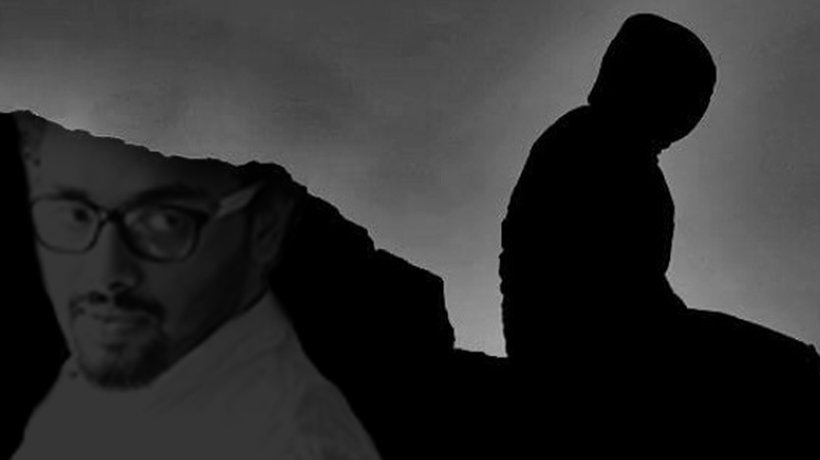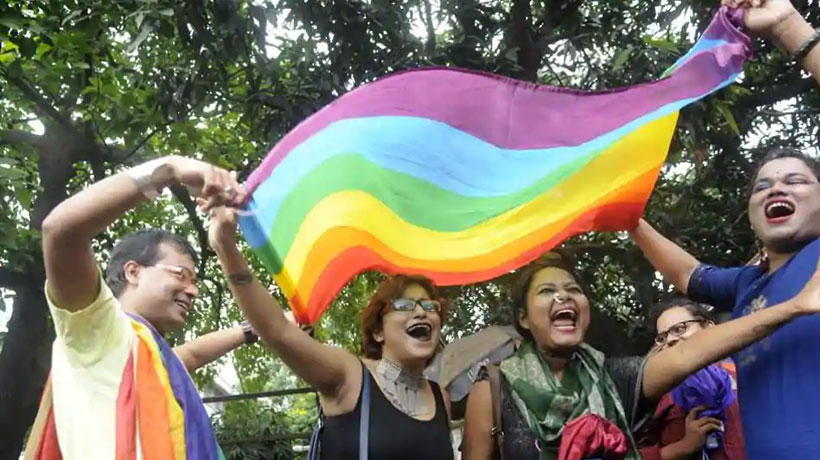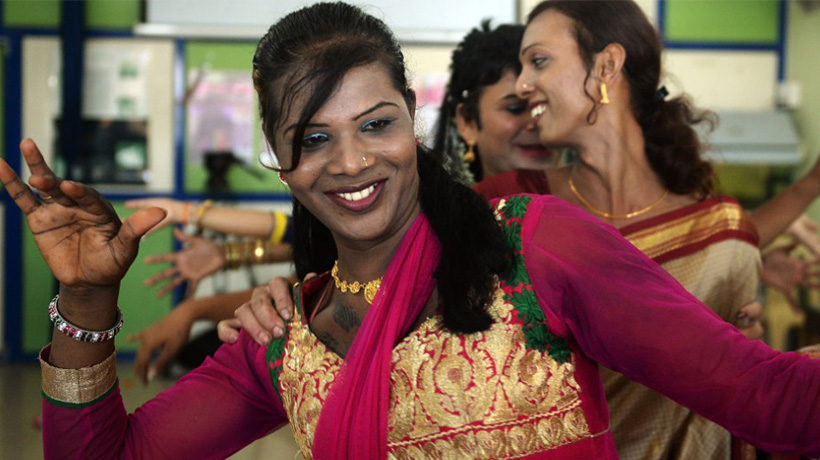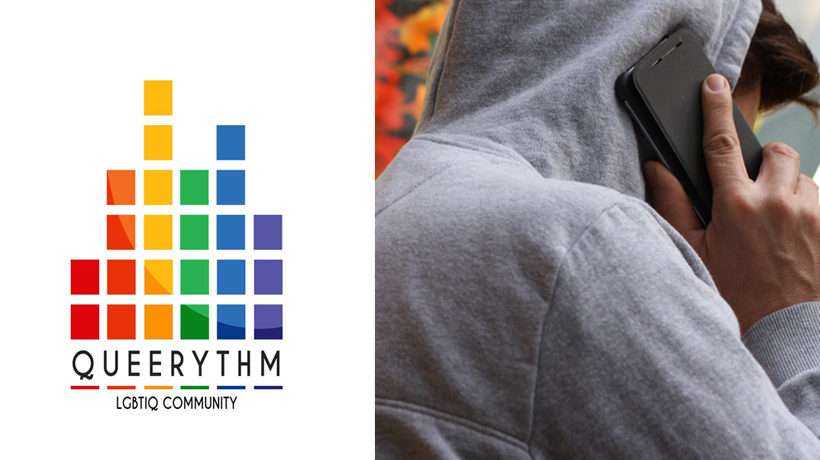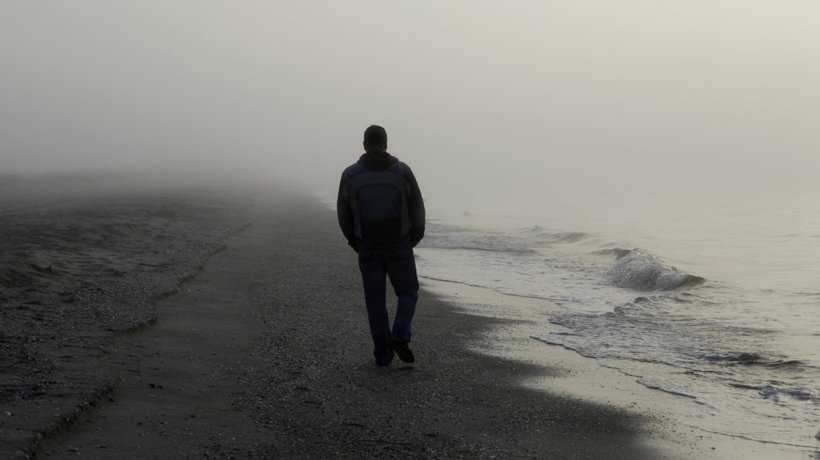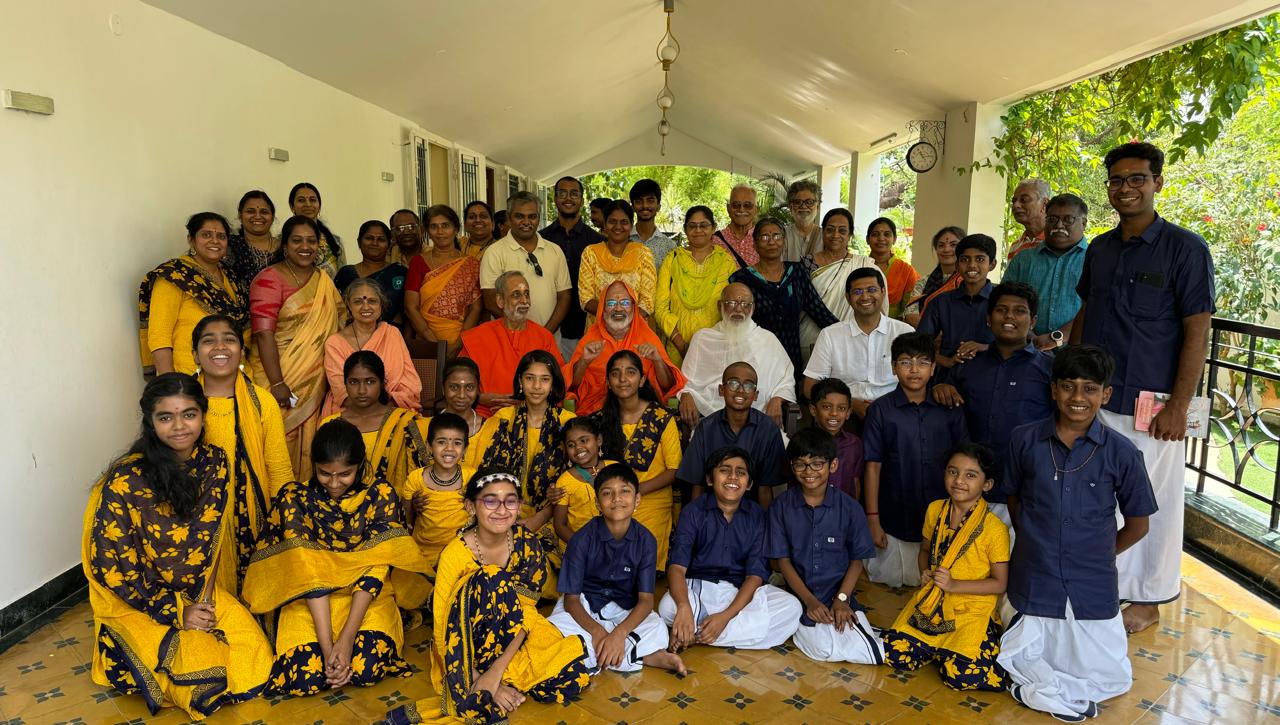Trending Now
- Delta and North fall under the last 15 places with regard to Plus 2 results. This is due to the callous attitude of the government: PMK founder Ramdoss
- England Cricket Board speaks to BCCI seeking to show England players at the IPL Play Off tournament.
- Dhruv Vikram starring Mari Selvaraj’s movie has been titled Bison.
TCP′s LGBTQ Pride
“What are you, a Chandupottu?”; a queer man from Idukki recalls his life
![]() June 28, 2018
June 28, 2018
When did I realise I was queer? I never had an epiphany of any sort. I always thought of myself as just another little boy, perhaps a little more gifted than others (as one does in the days of infinite self-worth before life slaps you in the face).
I remember my mother telling me that I was always fascinated by the long hair on one of my cousin sisters as a toddler, and how I used to sit behind her and drape her hair over mine and admire the oiled Malayali magnificence as it cascaded past my shoulders. And later, there was the mimicking of the Siva-tandava from the TV serial on the deity.
Even as a young child, every single one of my idols were female, starting with the heroine of childhood mythology lessons from the family, the devi Durga. Then came the Hindi and Malayalam actresses who mesmerised me with their eyes on screen, be it Shobana in Manichithrathazhu, Divya Unni in Aakashaganga, or Raveena Tandon and Pooja Batra with their long legs and alluring dance moves.
It was always the actresses I danced to, always the female identities I aligned myself with. And this inevitably led to towels pinned over my head in place of their long flowing locks, and bed sheets replacing the sarees and skirts, lehengas and cholis. Many times my mother walked in on me prancing around with ornately arranged towels on my head, and yelled at me to not do it. But she was never accusatory in her tone, nor did she ever try to shame me. Looking back now, it was more her trying to protect me from the world rather than asking me to change for her or myself.
Did she have an inkling back then? This was the 90s, and queerness was an alien concept for every-day Malayali adults, let alone children. I was just a child expressing himself, and everyone in the family was used to the femininity that was inherent in most of my choices. I don’t remember ever being shamed for it.
Some of them might have questioned me on it, but none of it remained in my memory as it never mattered to me. It didn’t leave deep unhealable scars because their love and support of me as a person always outweighed everything else.I was a child, and I was living my best self. The only regret was that I never could get a doll to play with, but then again, I never got around to getting that wooden model of a KSRTC bus to play with either.
Even in school, I don’t remember ever feeling ostracised or separate from the others. In those days, boys and girls didn’t mix, but I was always friends with the girls, be it in 1st standard while playing house during the last period games, or in 4th-5th standard when I was placed in the midst of the girls in class as punishment for talking during school hours.
That was punishment for the other boys, who recoiled from the girls like they had rabies. I was completely at ease with them because I didn’t buy into the duelling natures of gender that we were being fed at home and in school, consciously or unconsciously.
But of course, growing up teaches you things about the world and breaks the tinted glasses you view it with until then. In my teens, I studied at a boarding school, and that heavily changed how I perceived the world and myself.
Again, there was a constant separation between the sexes, by the school authorities (who seemed to think that any two people of the opposite gender interacting would lead to orgies or something), and by the boys themselves who were at the same time, infatuated and confused by girls.
There, for the first time in my life, I was made to feel bad about my feminine traits, that I wasn’t ‘man’ enough. I was obviously feminine, and got the usual teasing that nearly all queer people have experienced in some way, shape or form from classmates and seniors, and even the faculty.
I distinctly remember when I was 13, in English class (which was taught by my favourite teacher), I must have acted particularly feminine, because she looked at me and chided, “What are you, a Chandupottu? (The slur was based on the Malayalam film of the same name, which portrayed an effeminate man and his journey to become a “real” man).
That cut deep, especially as it came from someone who I considered ideal and infallible. I felt soiled and dirty, almost tainted by the touch of femininity. From that day on, I tried actively to act more masculine (I don’t know how successful I was at this, but another teacher later did comment on how I no longer acted “like a girl”).
No one could really fault me for anything else as I was undoubtedly one of the better students in the school, having great grades and always winning prizes for both artistic and athletic activities. But I always felt inadequate, because I thought I was at fault for being feminine.
It was further complicated with the question of sexuality when at the age of 14 I came across the word Queer in a newspaper, and realised that there was a name for what I felt. That was the first time I felt different because of who I felt attracted to.
Being a queer individual from small-town in Idukki, Kerala could have been hell in many ways, but somehow I managed to navigate it better than most. Maybe it’s the fact that I never questioned my queerness. It was always apparent to me that I was queer.
I had read extensively enough to know that there was nothing inherently wrong with being queer, and whatever issue there could be would be based on the perceptions of the people and institutions around me.
After a near mental breakdown around at the age of 16, I resolved to actively try and spread awareness around me. In high school, being a person with some amount of clout, I made sure that my friends were always aware that sexist and queer-bashing humour or discussions were not something they could partake in around me.
I came out to many of my friends, and while many were shocked, none were truly appalled or horrified. None of them ever pushed me away because of the revelation. That gave me validity, and a sense of hope that even though I was in such a small-town environment, awareness and education could help.
I was still terrified of coming out to my family, because I worried that they would be disappointed. But I knew that even if they were, I had the choice to step out on my own as an individual as my parents had instilled in me the value of independence and individuality.
Of course, there were a few instances that didn’t leave a great taste in my mouth, and they came from surprising places. Once, a group of boys teased me about how they felt unsafe with a predator like me walking around while they were practicing shirtless. I did feel deeply hurt, but then the guy who said it came up to me, owned up to his mistake and apologised on his own volition. The statement had clearly stemmed from a place of ignorance and chauvinism, and the conversation helped in clearing the misconceptions.
The other time was when a counselling session was arranged at school where we could voluntarily sign up to speak with a therapist. Well, I wasn’t surprised when the nun, the therapist, shrivelled up and nearly fainted when I came out to her (till then she had been praising me about my grades). I felt more tickled than incensed when she couldn’t even form a coherent sentence after that.
Coming out as queer to my family wasn’t the melodrama I envisioned it to be. My mother asked me while I was in college, and I said that I was queer. That was it. There were no hysterics, no blame-games or tears. Of course, she being an Indian mother worried about who will look after me when I’m old and lonely, and about “log kya kahenge”. But there was never an accusation from her.
She had the foresight to do research online before asking me, and I can’t explain the pride I feel in that woman who sets such a great example for me. My parents have always been more informed and open minded than many of my peers. We have established a relationship where we as children know we have the option to be open and honest with them.
My mother is practical enough to know that our society is yet to catch-up, and might not be as accepting as her. So she would love to see me independent and settled abroad where I can be myself without fear of being targeted (she doesn’t know that my personality might be the bigger issue).
The bigger hurdle was my brother, who already knew what was up but wasn’t ready to accept it. We have always been as close as siblings can be, so I knew that he was more worried about what could happen to me rather than the problem it could be for himself and the family.
There was a period when the issue was bubbling under the surface. Then I made him understand that it wasn’t a phase or a deliberate choice. He is satisfied as long as I’m happy, and I can’t be selfish and ask for more. As for the extended family, I couldn’t care less about who thinks what. It’s not their business how I live my life.
Paraphrasing Rupaul, unless they pay my bills, I can’t be bothered to pay any mind to what others think of me. Family will always come first if the relationships are strong, and I believe in at least some of them knows and understands it.
For me, the journey to my present state of mind has been more about finding peace within myself than my struggles with the outside world. Body dysmorphia, low self-esteem, bouts of depression and other struggles are a constant companion. Of course the current rise of fundamentalism in all fields of Indian culture has me worried, but things that are beyond one’s control cannot, and should not, govern one’s life.
Fact remains that the paradigms for small-town queer people are different from those in the big cities. The queer rural experience is fundamentally rooted in ignorance of the individual themselves and the people around them. The idea of queerness is alien, and concepts like homosexuality, bisexuality, asexuality are completely beyond their comprehension due to lack of exposure.
There are no identifiable icons that young queer persons can identify with, and the education that they have about sex and sexuality is laughable at best. The social agencies that exercise most authority in the lives of people are generally extremely negative towards notions of queerness. Denunciations are quick and constant.
There is close to no literature available for questioning youngsters. What this leads to is an inevitable self-hatred or aversion that results in unhealthy suppression of sexuality. The constant barrage of derogatory or comical portrayal of queerness in influential mediums of entertainment makes it far easier for young queer individuals to turn inward and hate themselves for being “bad” or “dirty”.
There is also the belief amongst a lot of queer people from rural areas that sex is all that queerness is about. There is no concept of queer pride, community or universality. Most simply think about the next secret dalliance to satiate a hunger they don’t fully understand, and cannot fathom that there is more to it than they envisioned. They do not identify words like gay, bisexual, pansexual etc as sexual identities, but as slurs.
Then there is the definite feeling of inferiority for queer individuals with more awareness about sexuality and gender when they see that the few spaces that cater to people of their tribe are for people they can’t equate with; the shiny and beautiful urban rich. The unattainable nature of a city nightlife, the uncompromising standards of physical beauty and material worth and a constant feeling of not being represented in any way (even in the few instances in mainstream media, we only get to see the lives of upper-middle class youth with perfect bodies and boutique-ready faces) makes even the most aware rural queer person feel separated by invisible lines.
Being from a small town, the chances of sexual encounters are surprisingly ample in this age of smartphones and more, but as someone who has no interest in anonymous hookups or instant gratifications, life can be a drag in many ways. There’s not much of a queer culture. Even though there are Facebook groups and such of queer individuals aimed at bolstering communication and a feeling of belonging, the fact that queerness is still considered a taboo, and in fact very much illegal in our country means that being open is a dangerous game without allies in everyday life.
While I have great queer friends, it’s depressing when there isn’t much chance to hang out as human beings and experience the human comforts of regular conversations with people you identify with more easily.
There’s always an invisible wall that separates me from every other person in my life. The few people who could walk through and engage are big-city boys in completely different paradigms. But these few friends that I do have, the bonds I have nurtured with these fellow queer individuals are incredibly strong and unique. We get to choose our own families in a way, and I have a brotherhood that I cherish very much. They understand the struggles and unique experiences we share better than anyone else. If nothing else, it’s always great to have a group of people to be unabashedly queer with, watch Rupaul’s Drag Race with and sing along badly to Beyoncé and Celine Dion.
I might be an anomaly in terms of small-town queer boys, because I never went through a questioning or self-hating phase because of my sexuality. I have always looked outside, feeling always as an outsider, and my world has always been the greater world beyond my semi-urban hometown in the wilds of Idukki.
Books, TV, Internet- every single aspect of the modern age that brings the world closer to home ensured that I never grappled with small-town mindsets about queerness and sexuality. It helped me in becoming independent and individualistic in my own expressions.
I can question gender norms with my choices without feeling ostracised by others because I have trained myself to see my queerness as part of myself. Not as a construct in opposition to others and their vision.
Where once, I was ashamed of my femininity, I now have accepted and started celebrating the it in each person. I try to teach that to my colleagues and friends so that in turn they can go out into the world a little more aware and accepting.
My sexuality isn’t all I am, it’s just part of who I am as a whole. Where once I had to watch how I walked, talked and behaved, now I paint my nails (because boys could and should be allowed to be fabulous), grow my hair long and keep a beard, and never shy away from the natural exaggerations of my gestures or facial expressions.
Being masculine and feminine are not mutually exclusive, and neither is it inferior or superior. If people realise it, then that’s already a great leap forward; not just in terms of queerness and gender identity, but also for the erasure of the chauvinistic bases of Indian society.
My colleagues, my friends and I have had long discussions on topics of gender and sexuality. While initially there were hesitancies, I have found that with the right attitude, people do want to learn more and educate themselves.
The biggest struggle for small-town boys, in my experience at least, is the lack of awareness and discussions that could enlighten the people, queer and otherwise. The queer population only see their queerness as an abhorrent sexual deviancy that they have to practice in hiding, behind veils and shadows. That attitude births a population who are all about anonymous sex with unfettered, and innate anti-feminine attitudes. That needs to change.
As a 25 year old queer man from a little town in the foothills of Idukki, my experience might not be unique or original, but the personal flavours and individual choices that lead to where I am today makes it unique. It is a limbo state; neither cosmopolitan, nor totally ignorant, backward and oppressive. But these stories need to be heard so that other small-town boys can identify and see themselves as being able to see a valid and legitimate future that’s not limited to what they could envision in their small-town worlds. And that can only be a good thing.





